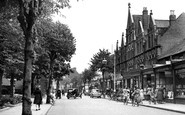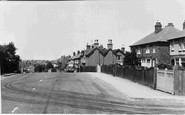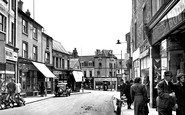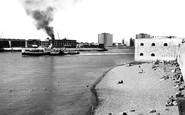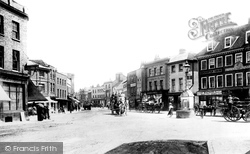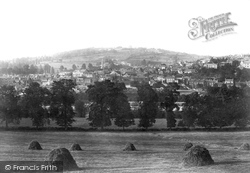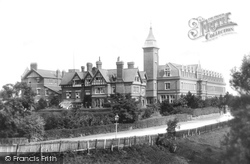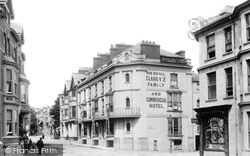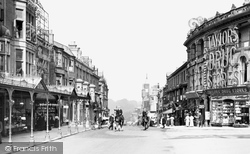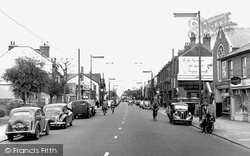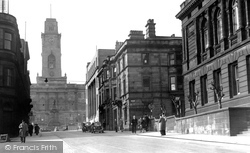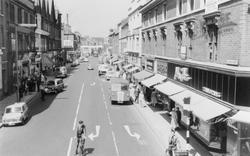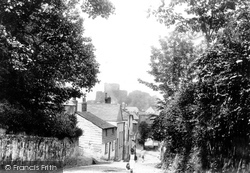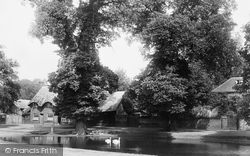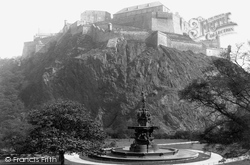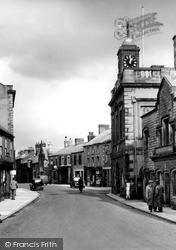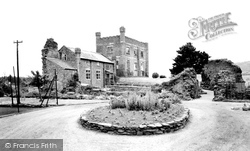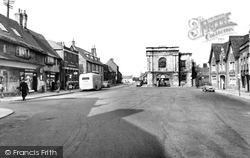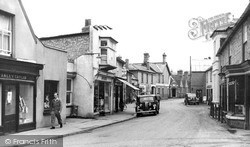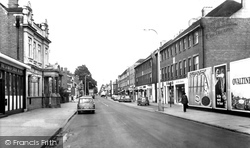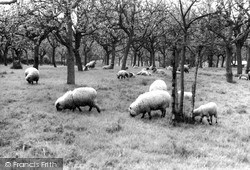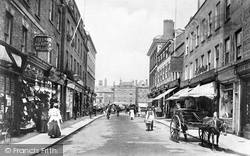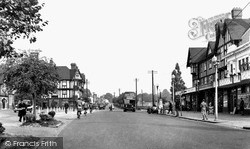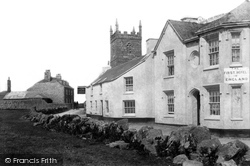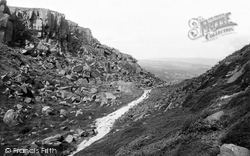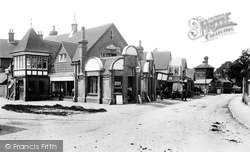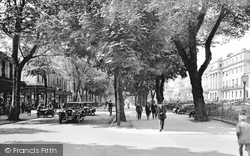Places
26 places found.
Those places high-lighted have photos. All locations may have maps, books and memories.
- Town End, Derbyshire
- Town End, Buckinghamshire
- Town's End, Somerset
- Towns End, Dorset
- Town End, Merseyside
- Town End, Cambridgeshire
- Town's End, Buckinghamshire
- West End Town, Northumberland
- Bolton Town End, Lancashire
- Kearby Town End, Yorkshire
- Town End, Cumbria (near Grange-Over-Sands)
- Town End, Cumbria (near Bowness-On-Windermere)
- Town End, Yorkshire (near Huddersfield)
- Town End, Yorkshire (near Wilberfoss)
- Town End, Cumbria (near Appleby-in-Westmorland)
- Town's End, Dorset (near Melbury Osmond)
- Town's End, Dorset (near Swanage)
- Town End, Cumbria (near Ambleside)
- Town End, Cumbria (near Lakeside)
- Town End, Cumbria (near Kirkby Lonsdale)
- Town End, Cumbria (near Ambleside)
- Town's End, Dorset (near Bere Regis)
- West-end Town, South Glamorgan
- Townend, Derbyshire
- Townend, Strathclyde (near Dumbarton)
- Townend, Staffordshire (near Stone)
Photos
23 photos found. Showing results 2,401 to 23.
Maps
195 maps found.
Books
3 books found. Showing results 2,881 to 3.
Memories
3,719 memories found. Showing results 1,201 to 1,210.
Eastleigh Memories
All the pictures have such lasting memories. I was born on Nutbeem Road in 1935 and attended Chamberlayne Road Boys School and Barton Peverill Grammar School. Three of us, Dave Gardner, John Young and myself, started at the ...Read more
A memory of Eastleigh by
Build A Boat
My Nanna and Grandpa. Mr and Mrs Beauchamp lived at a House called 'Craig Side' on Greenhill Lane, which is just down from the trees to the left of this photo. I remember the house was slightly different than it is today. It had a ...Read more
A memory of Riddings in 1970 by
Slough Safety Town The Teds
I remember going to Slough on a Saturday night in 1958. I was fifteen years old. My hair was well greased and combed back at the sides and ending in a D.A. at the back together a quiff at the front. I was dressed in ...Read more
A memory of Slough in 1958 by
Wonderful Wellingborough In My Early Informative Years!
I lived in Wellingborough from 1952 to 1971. My Father was J N Clark, and with my Mum owned and ran the General Store on Weavers Road until 1960. Mum and Dad took me to see my first ...Read more
A memory of Wellingborough in 1956 by
Childhood Days
The year I began at Newton le Willows Grammar School, I had sprained my ankle running through the back lanes of Earle Street in the holidays and had my foot in a bandage. We lived in Brookfield Street until I was 5 or so with my ...Read more
A memory of Earlestown in 1966 by
Air Raid
I was born in Laurel Avenue in 1936 and lived there until 1959. During the war we were bombed out of our house following an air raid during the night, when German bombers were trying to cut the main line between London and ...Read more
A memory of Potters Bar in 1950 by
1950s Frizington
I grew up in Parkgate when there were three pubs and three shops, I schooled at St Pauls Junior School, Headmaster was a very strict Mr Moore with Mr Teare, Ms Bowness I think, Miss Martin and Mrs Crossthwaite. Those were the ...Read more
A memory of Frizington in 1955 by
Methilhill Man
I was born at 18 Greive Street. I had an older brother, 'Big' Al, alas deceased. I also have 2 sisters, Senga and Elaine, and a younger brother, Grant. We stayed in the Main Street then moved to Queens Avenue till I married. My ...Read more
A memory of Methilhill in 1940 by
Evacuated To Borth
I think it was about 1939-41 that my mother, Florence O'Donovan, my sister Sheila and I went to Borth with Mrs Back and her children Joan and Guy to get away from the danger of living in Norwich which was a target for bombing ...Read more
A memory of Borth in 1930 by
Just Married 1970
I spent many a happy time walking my Boxer dog round Old Portsmouth and he loved it down on the beach by the Hotwalls where I would throw stones in the sea for him to go and get. I had only just got married and my husband was ...Read more
A memory of Portsmouth in 1970 by
Captions
5,054 captions found. Showing results 2,881 to 2,904.
A coach and horses passing through the town at this date must be one of the last revivals of the great coaching days.
Britain's most important centre for the manufacture of broadcloth, this mill town sprawls across its wide valley, a huge piece of industrialisation in a wonderfully natural setting.
During his years at Cheltenham, Close had founded Christ Church and had been a leading light in the development of educational establishments around the town.
Seaton is a mostly Victorian town hard by the mouth of the River Axe. Though never one of Devon's more fashionable resorts, it has a charm of its own and an attractive setting.
Harrogate had become a fashionable town noted for its fine shops and rich teas.
Beyond Hounslow, the Great West Road divided into the two coaching routes leading to Bath and Exeter.
The Town Hall dates from 1932-33, designed by Briggs & Thornley and built of Portland stone.
The railway came to Burton in 1839 with the opening of the Birmingham & Derby Junction.
Race Hill was once the main road into Launceston from the south; it leads down to the South Gate, which is the last remnant of the old town walls.
Railways made Victorian countryside accessible to city dwellers, and writers romanticised it so much that many moved out there. Urbanisation had begun.
The gardens, the railway line and Princes Street occupy the area once covered by the waters of Nor' Loch.
The centre of Garstang has been spared the worst ravages of modern development and, although generally now more busy than depicted here, remains largely unchanged.
The buildings now house the town's museum. The museum was opened by Lord Raglan in July 1959, and its first curator was Duggan Thacker. It was extended with the refurbishment.
The substantial stone buildings to be seen in the town here in the Square and also around Salter Street hint at the wealth made by local merchants, who made their money in trade and shipping
This prosperous small town witnessed a day of rioting on 22 May 1822. The rioters were protesting against their starvation wages and the high levels of unemployment.
This road is the main shopping street in Fleet, and it contains a mixture of architecture from Victorian to modern.
In 1586 Camden said that Weobley had 'more fair cellars than most market towns of its bigness in England'.
In 1586 Camden said that Weobley had 'more fair cellars than most market towns of its bigness in England'.
Freeman, Hardy & Willis must have been one of the earliest high street chains to establish themselves in large and small towns alike.
The Railway Hotel and two blocks of Tudor-style shops were built, but Howard's vision was scuppered by the Second World War.
This bleak, wind-blasted village, the most westerly in England, is known locally as Church Town. The low granite tower of St Senana looks down on the first and last hotels in England.
Behind the Cow and Calf rocks is this desolate valley from where most of the stone to build the town was quarried.
It is now the British Legion building, and a new 'village' hall has been built in the centre of town.
The Prom, as it is known in the town, was laid out properly in 1818 and lined with 44 chestnut trees.
Places (26)
Photos (23)
Memories (3719)
Books (3)
Maps (195)

